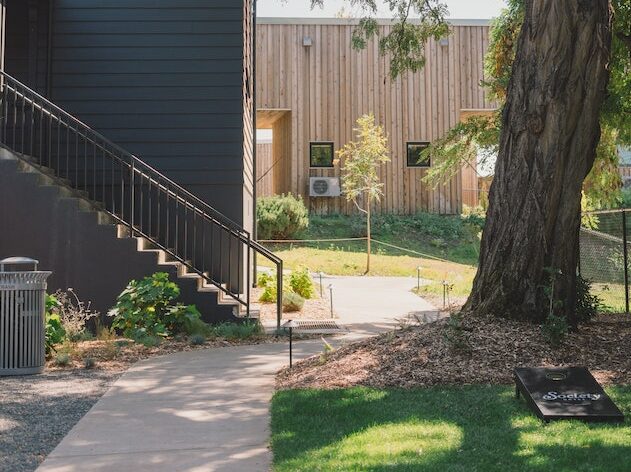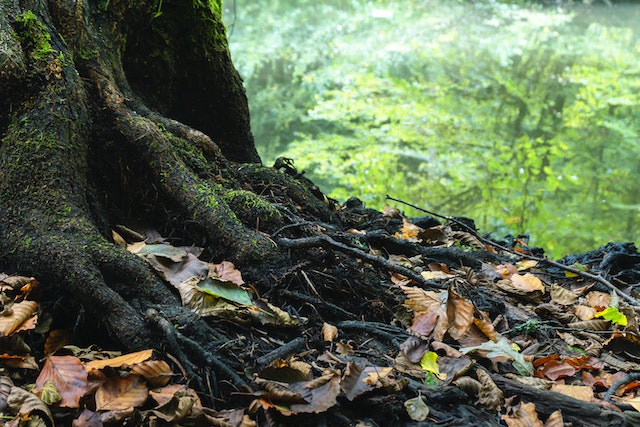
A significant problem homeowners face is tree root damage in their sewer lines. In fact, according to plumbers, tree roots growing in pipes are a common cause of sewer clogs. Unfortunately, tree roots can spread throughout many areas of your sewer line and damage and degrade the condition and functionality of your residential home’s plumbing.
In most instances, a tree root problem will start closest to the trees near your home’s underground pipelines. Many homeowners don’t realize that a tree’s root system is growing into their sewer lines until damage starts. Fixing the damages associated with tree roots growing in pipes can be costly and time-consuming.
Fixing tree root damage can be complicated and create structural problems if not fixed correctly. That’s why Long Island homeowners should consider using the services of a qualified plumbing team like the one at Scully’s Plumbing & Heating. Our article will discuss everything you should know about tree root damage to sewer lines, including how to prevent it.
How Do Tree Roots Damage Sewer Lines?
Tree roots can cause severe damage to your home’s sewer lines. Even though sewer pipes are durable materials like concrete, clay, and PVC, tree roots can still penetrate them.
When they spread through a sewer line, they cause structural damage. Significant cracks can occur. In many cases, tree roots can cause pipes to crumble, collapse, and deteriorate to the point they can’t be repaired.
As tree roots continue to grow and absorb water in a sewer pipe, they can cause blockages, affecting the drainage in your home and potentially a sewer backup. These blockages can be difficult to fix and could require pipes to be dug up and replaced.

How Do Tree Roots Get Into Sewer Lines?
Trees send out roots to gather nutrients and water, so your trees will look for ways to get into your sewer lines. Sewer lines are attractive sources of nutrition to trees because of the sewage and water that is readily available.
They will seek cracks and ways to get in so they can grow and thrive. The process is as follows:
- The warm water that flows through your sewer pipes causes vapors to dissipate through tiny cracks and loose joints into cooler soil around a sewer pipe.
- The trees on your property will sense these vapors and send their roots toward the pipes. This process could be gradual or fast, depending on the type of trees you have at your house.
- Eventually, if you have no preventative measures, the roots will start growing into loose joints and cracks in your sewer line.
If tree roots have infiltrated your pipes, consider contacting a plumbing expert before more damage is done.
How Do I Protect My Sewer Pipes From Tree Roots?
Now that you know exactly how damaging tree roots can be, you’re likely wondering how to protect your sewer pipes from tree roots. Fortunately, there are a few ways you can save yourself time and money in the long run. See below for preventative measures you should enact to ensure tree roots don’t damage your sewer lines.
- Complete routine inspections and maintenance. If you’re unsure what to look for, you need to hire a professional plumbing company that can routinely inspect your sewer lines and maintain them. A plumber can ensure your pipes don’t show structural damage and stay clean and free of blockages. Regular maintenance and inspection will also ensure no other pipeline problems arise or are dealt with swiftly.
- Create a barrier. Arguably, one of the most effective preventative measures to keep roots at bay is to create a barrier. There are many ways you can make a barrier. For example, you can use slow-release chemicals that are specifically created for use on residential properties. The chemicals stop tree roots from growing near a sewer line. In addition, you could use a metal or wooden barrier that is planted about 6 inches deeper than your sewer pipes.
- Plant trees away from sewer lines. When landscaping your lawn, you can plant trees away from your sewer lines and limit the number of trees you plant. You can also choose to plant trees that have small root balls for your lawn because these trees don’t spread their roots as quickly.

Frequently Asked Questions
- How Do You Know If Tree Roots Are Damaging Pipes?
There are a few ways you can determine if tree roots are damaging your sewer pipes. Some signs of tree root damage you can look for include:
- Pipes that are blocked or collapsed. You will know they have collapsed or blocked when you have a backed-up toilet or drain.
- Sinkholes appear on your lawn.
- Foul odors that smell like sulfur or rotten eggs.
- Gurgling sounds when flushing a toilet or draining a sink.
- Clogged or slow-draining sink and bath drains.
- How Fast Do Tree Roots Grow In Sewer Pipes?
Interestingly, how fast tree roots grow in sewer pipes depends on the type of trees you have at your home. Some tree roots can grow and infiltrate your sewer lines in as few as 30 days, while other tree roots could take years to cause any damage.
How fast tree roots grow also depends on the moisture surrounding the roots and the soil conditions. Tree roots will grow faster once they have infiltrated a sewer line because they have more nutrients to grow.
- Who Is Liable For Tree Root Damage?
Unfortunately, there is no blanket answer to who is responsible for tree root damage because every tree root sewer line damage situation is unique.
Most often, you’re liable for the costs if you own the house and have trees on your property that have caused the situation. However, if your tree root damage has occurred because of your neighbor’s trees, it’s possible they could be liable to pay for your damages.

Speak With A Plumbing Expert At Scully’s Plumbing & Heating To Discuss Your Sewer Line Needs
You now hopefully know how tree roots damage sewer pipes and why it’s essential to prevent this from happening. Should you run into plumbing trouble with tree roots, our team at Scully’s Plumbing & Heating can help you prevent tree root damage or fix sewer line damage caused by tree roots.
Our committed team can also assist you with your other plumbing and heating needs in New York’s Nassau County, since we have a team of capable and knowledgeable technicians eager to help you. So get in contact with us today, and we will give you an obligation-free quote.


